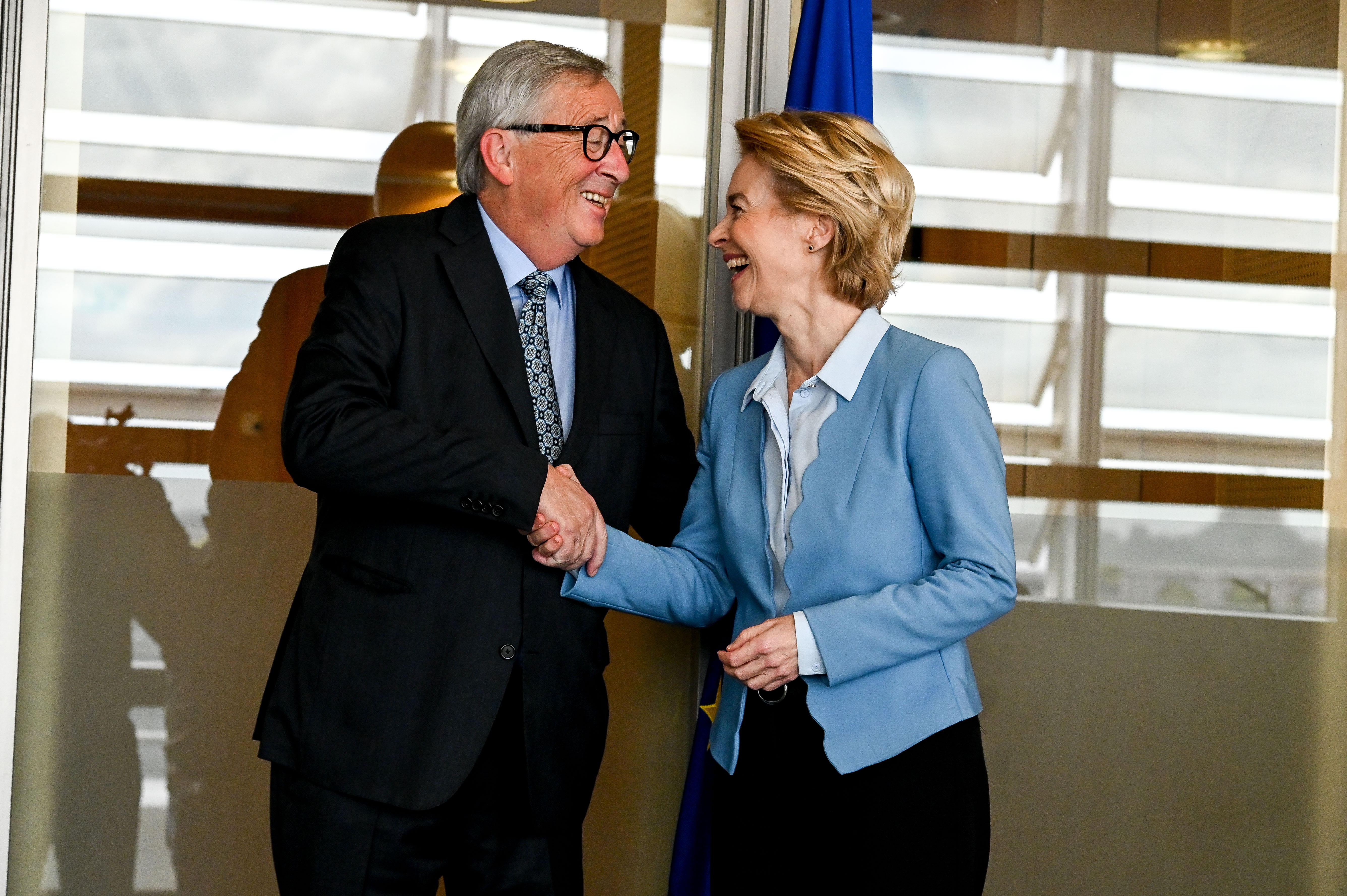EU: Looking back and looking ahead
- By George N. Tzogopoulos
 0 Comment(s)
0 Comment(s) Print
Print E-mail China.org.cn, September 17, 2019
E-mail China.org.cn, September 17, 2019

The outgoing President of the European Commission Jean Claude Juncker will leave his post with a relatively good legacy. The most important success has been his personal contribution to the integrity of the Eurozone, especially by helping Germany and Greece to bridge their differences in the first months of 2015 and preventing "Grexit."
The EU has also effectively defended its interests against Brexit under Juncker's leadership. While there had been great concern that the result of the 2016 British referendum would encourage others to leave the EU in 2016, this is no longer likely to prove a precedent. Meanwhile, the position of the U.K. is being continuously weakened.
There was, however, also a deficiency of progress in important fields during Juncker's term. The EU failed to tackle the problem of anemic growth, to provide a fair and comprehensive solution to the refugee crisis and, more importantly, to inspire European citizens.
The outgoing President of the European Commission should not necessarily be held solely responsible for the obvious setbacks. The EU is not a state and does not function as one. The most important decisions are not made at the intergovernmental but the supranational level. This fundamental observation demonstrates there are limits in the potential of the EC to shape policy-making.
Juncker's successor, former German Defense Minister Ursula von der Leyen, appears optimistic her term will be successful. Several European media outlets share her view about an original dynamism, especially after she presented her team and the new structure of the European Commission.
Von der Leyen said her "geopolitical Commission" will take bold action against climate change, build Europe's partnership with the U.S., define its relations with China and be a reliable neighbor for Africa.
What, then, can we expect? At the geopolitical level, the EU still lags behind other great powers. Most member-states have different priorities and it is practically impossible to forge a common foreign and defense policy with the exception of basic issues.
One important example can be given to support this claim. Countries in the East of the Old Continent tend to view Russia as a threat. This approach is not widely shared because most member-states consider it an important economic partner and believe it should be part of the solution.
Additionally, most member-states prefer peaceful settlements than the use of force. While the U.S. attempts to withdraw from Syria, for instance, there are not many volunteers – with the notable example of Denmark – planning to send troops to the war-torn country and contribute to the fight against the Islamic State. It is thus hard for European initiatives such as PESCO to be compared with hard defense activities.
As far as environmental and economic affairs are concerned, it is much easier for the EU to act in a united way. The so-called European Green Deal, the insistence on the taxation of global digital companies, and resistance to the protectionist policies of U.S. President Donald Trump will be advanced as priorities.
The selection of the people who will deal with relevant portfolios in their capacity as Vice-Presidents or Commissioners, namely Frans Timmermans, Margrethe Vestager and Phil Hogan, is indicative of the European determination to forge ahead.
It is not clear how the transatlantic partnership will be built, though. A critical moment will be if the American administration finally imposes tariffs on the imports of European products expanding President Trump's trade war policy.
With reference to China and Africa, words are easier than deeds. While the new Commission will almost certainly follow the path of the previous one in holding up China as a competitor and sometimes rival, various states are carrying on business as usual with it.
The recent visit of Chancellor Angela Merkel to various Chinese cities shows it is realism that shapes the European policy. Last but not least, Europe's interest in becoming actively engaged in Africa is being hindered by its allergy to welcoming and hosting refugees, as well as by its colonial past.
The formation of the new European Commission reflects current political trends in Europe. A German President will set the tone among vivid reactions. The European Parliament only supported her with a thin majority (383 votes in favor and 327 against). Von der Leyen's ambition for "a Union that strives for more" as she has put it, is limited in scope and therefore realistic.
George N. Tzogopoulos is a columnist with China.org.cn. For more information please visit:
http://www.china.org.cn/opinion/GeorgeNTzogopoulos.htm
Opinion articles reflect the views of their authors, not necessarily those of China.org.cn.
If you would like to contribute, please contact us at opinion@china.org.cn.






Go to Forum >>0 Comment(s)